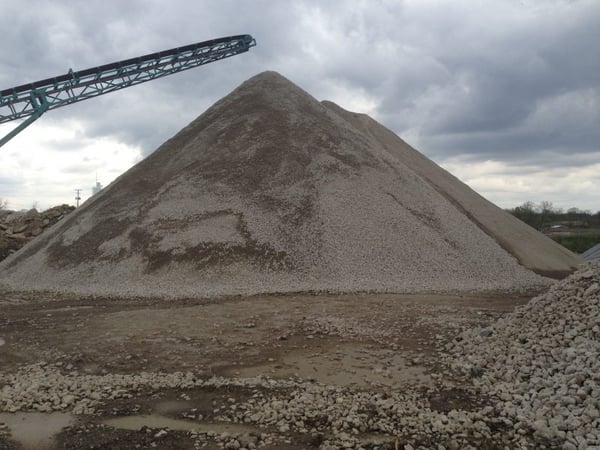
Not too long ago, sustainability and recycling was nothing more than a trend.
Today, however, you could argue that it's a necessity -- as more and more consumers are becoming aware of their environmental footprint, and changing their buying behavior to reflect this value.
The good news is that recycling has expanded well beyond household goods and packages today encompass a wide range of materials.
Asphalt and concrete are included in this mix, and recycling such isn't just good for the environment, but for your wallet as well.
How Concrete and Asphalt Recycling Works:
Conventionally, when asphalt and concrete were removed, the materials were loaded into trucks and designated for the landfill. That's not the case anymore.
Today, concrete and asphalt can be crushed on site or taken to a recycling site for crushing. Once crushed into a finer medium, concrete is commonly used as an aggregate, or a sub-base, on new construction.
Asphalt is a material that's becoming increasingly recycled as well. In fact, it's estimated that up to 80 percent of all asphalt is reused as an aggregate substrate in paving mixtures.
Similar to concrete, asphalt is chipped and accrued either on site or at a recycling facility to prepare for future uses.
Top Benefits of Asphalt and Concrete Recycling
- Helps save money
- Conserves unused resources
- Transportation costs are reduced
- Keeps material out of landfills
Like any type of recycling, when you recycle concrete and asphalt, it helps save money and conserve unused resources. What's more is that you're greatly reducing transportation costs when you reuse old materials as opposed to using new ones.
This is especially true when it comes to transporting heavy building materials that require a more intensive shipping method. If concrete and asphalt can be crushed and reprocessed on site, you're taking transportation completely out of the picture.
It's worth talking a little bit more about how recycling concrete and asphalt helps conserve existing resources and limits the amount of waste that enters landfills. It's estimated that the average household contributes more than 1,800 pounds per person of waste.
Recycling building materials doesn't just potentially reduce thousands of pounds worth of waste that would normally be earmarked for the landfill, but it also limits the strain on natural resources when it comes to creating new materials. Hence, recycling is a big win-win in this regard.
When it comes to recycling, it's important to assess the impact that doing so has on the entire process, from initial manufacturing to transportation to where the product goes at the end of its life. Recycling concrete and asphalt hits all the right notes in this regard.
How Recycling Saves Money
In general, using recycled materials saves about 25% on material costs.
The other big benefit to recycling asphalt and concrete is that you can save money doing it. It's often cheaper to crush and recycle material than it is to send it to the landfill. Additionally, recycled concrete and asphalt is usually lighter.
Being that bulk construction materials are sold by how much they weigh, consumers can save money selecting the lighter option.
Noting the cost savings benefits and sustainability benefits, it's easy to see why recycling concrete and asphalt is an attractive option.
Talk To Your Contractor About Recycling
Depending on your project, you may be able to use recycled materials. Ask your contractor if it’s a money saving, and earth saving, possibility for you.
Don't waste money, or the environment, by replacing your lot sooner than needed due to avoidable damage. Follow our asphalt care and maintenance guide to keep your lot looking nice, ultimately saving you money:



